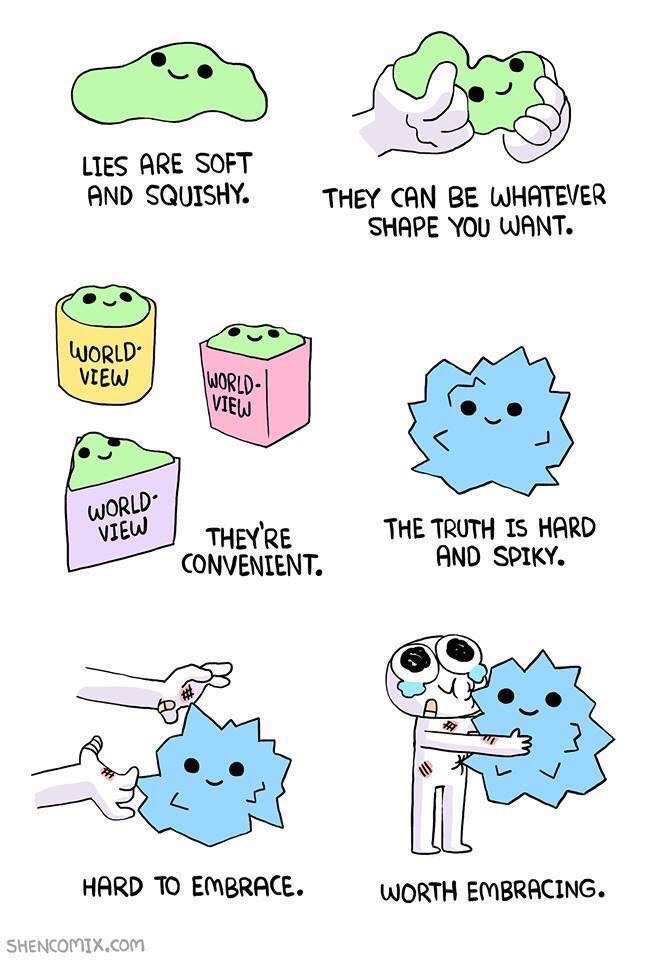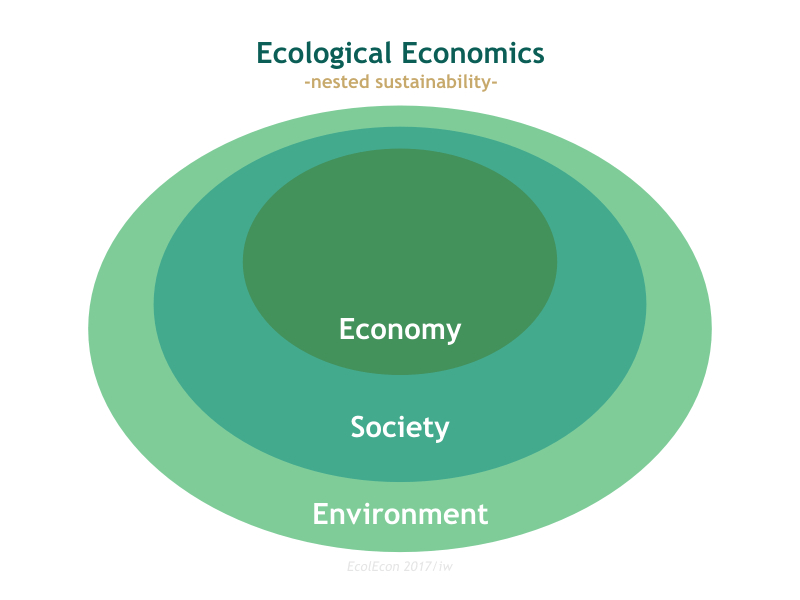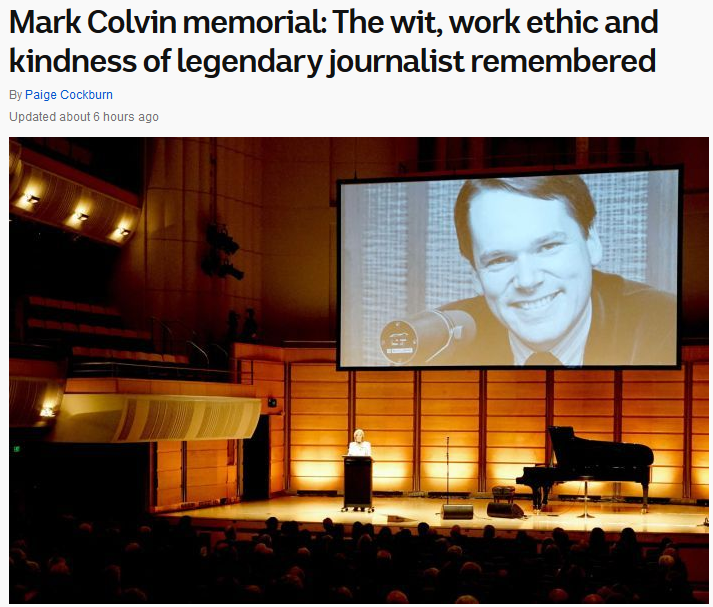Starting a new job on Monday. A reminder to self what matters…
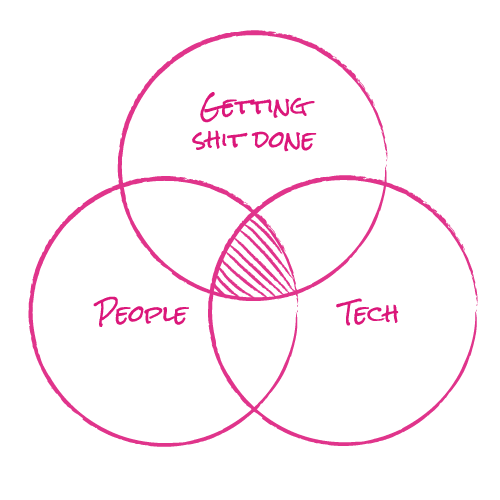
Category: Stuff that matters
Breaks are good for you
On leave in my hometown hanging with fam and friends is the best thing ever 😀

True values
<3 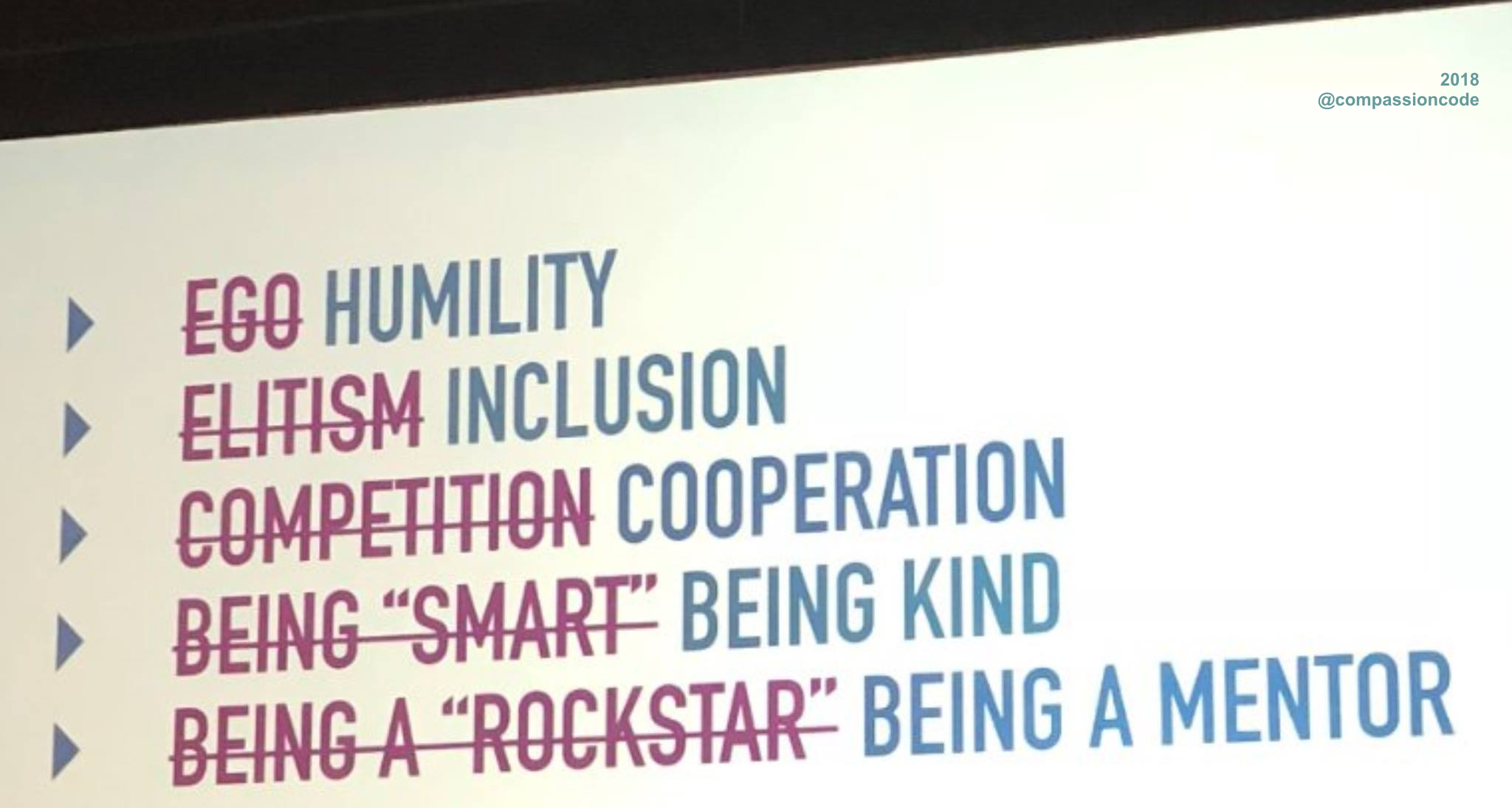
Gaslighting or ‘When the hug is the drug”
Reading about gaslighting made me realise how trauma inflicted early on in my life created the perfect storm. That combined with my partner’s inability to interact with the world truthfully simply accelerated my low self-esteem into the ground, to a degree where I thought I am actually losing my mind, cos everything is the opposite. Now, 10 years later, it turns out the problem is on his side, I was just a collateral to his ‘tweaking reality into whatever suits him’. He did not fuck up my mind intentionally, he foremostly fucked up his own mind. I just watched on and let myself get dragged in. Not all the time tho, the first few years I still tried to fight it, but totally exhausted myself, and then gave up. And I am not excusing him, or blaming me. This is really just a statement of realisation what had actually happened, how there was no malicious intent, but the consequential dangers of serious mental issues where ever so present, and are now fully impacting.
When the hug is the drug
Now, after more than a decade of self-deceit, he got an alarming wake-up call, and currently has to come to terms with how he wasted a large portion of his life to a lie. His own lie. And the pain he caused, to himself and everyone around him (which interestingly was only me in the end). I am staying clear of the process, watching from the sidelines, protecting myself. I am also staying clear from the number one drug in this relationship: Hugs. Sinking into his arms, hearing the “all is well” lie – it was what made me stop believing in myself. So here I am, barren, re-assembling myself. I’ll report on the process. For more in-depth reflection on the topic here’s what Shea @sheaemmafett has to say:
10 Things I wish I’d known About Gaslighting
Gaslighting is the attempt of one person to overwrite another person’s reality. There’s a good chance that you now know more about gaslighting than most therapists. And that is really unfortunate, because if you have experienced gaslighting, it’s going to be really hard to untangle it yourself. Unfortunately, you may have to, and I want to tell you that you are not alone. Let me share my experience. Here are 10 things I wish I’d known at the beginning. Let’s do this together.
1. Gaslighting doesn’t have to be deliberate
About the fifth time I called a close friend of mine on the phone, gasping for air, asking “Am I a monster?” he finally said, “Emma, he’s gaslighting you.”
What the hell is gaslighting? I thought. Wikipedia told me that it came from an old movie, where the main character makes changes in the environment and then insists to his victim that she is simply imagining these changes. Whaat? I thought. My partner is not doing that. I could not imagine him plotting and manipulating my environment or our interactions to make me feel crazy. He’s a human being who is hurt… who I keep hurting. It’s me, not him.
Unfortunately, the first definition I looked up was woefully inadequate. Gaslighting does not require deliberate plotting. Gaslighting only requires a belief that it is acceptable to overwrite another person’s reality. The rest just happens organically when a person who holds that belief feels threatened. We learn how to control and manipulate each other very naturally. The distinguishing feature between someone who gaslights and someone who doesn’t, is an internalized paradigm of ownership. And in my experience, identifying that paradigm is a lot easier than spotting the gaslighting.
Gaslighting tends to follow when intimidation is no longer acceptable. I believe that gaslighting is happening culturally and interpersonally on an unprecedented scale, and that this is the result of a societal framework where we pretend everyone is equal while trying simultaneously to preserve inequality. You can see it in the media constantly. For instance, every time an obvious hate crime is portrayed as an isolated case of mental illness, this is gaslighting. The media is saying to you, what you know to be true, is not true. Domestic violence wasn’t seen as a serious crime until the 1970s. So, did we, in the last 40 years, address the beliefs that cause domestic violence? No. But now if you beat your wife you’re usually considered to be a bad guy. So what do you do, with all the beliefs that would lead you to violence, if violence is no longer an acceptable option? You use manipulation, and you use gaslighting.
2. Manipulation and gaslighting are distinct behaviors
Maybe a better way to put this is that gaslighting is a type of manipulation, but not the only type. Manipulation usually centers around a direct or indirect threat that is made in order to influence another person’s behavior. Gaslighting uses threats as well, but has the goal of actually changing who someone is, not just their behavior. It’s important to recognize that gaslighting and garden variety manipulation are not the same. Both will degrade your self esteem, but gaslighting, when effective, will actually damage your trust in yourself and your experience of reality.
3. Gaslighting does not always involve anger or intimidation
The book The Gaslight Effect refers to a type of gaslighting called glamour gaslighting. This is where the gaslighter showers you with special attention, but never actually gives you what you need. They put you on a pedestal, but then they are not there, in fact they may get angry at you, when you need a shoulder to cry on. It becomes difficult, after a while, to identify why it is that you feel so alone and hollow. In another type of gaslighting, the gaslighter is always transformed into the victim. Whenever you bring up a problem, you find yourself apologizing by the end of the conversation. For me, these were the worst exchanges. Every gaslighter/gaslightee relationship is different, but for me, there was a very specific pattern. I would say something to him. He would have a very strong emotional reaction to it, far above what I would have anticipated. I would backtrack, to try figure out what I had said, and how to make it better. He would accuse me of inconsistency when I backtracked. I would try to explain that I was adjusting to try to communicate best with him, because clearly I was failing. He would tell me that my inconsistency implied that I was lying. I would say no, no, I know I’m not lying. Maybe, I just can’t remember it right. “It seems I can’t trust your memory,” he would say. We would never return to the original issue. I usually ended up crying hysterically.
4. It is normal to not be able to remember what happened
This, more than anything, is something I wish I had known. It was a secret I kept, that fed my self doubt and guilt for years after I left. I used to black out. I remember conversations, where I would start standing in the kitchen, and end up in a ball on the floor. Just days after it happened, I would not be able to remember what happened in the time in between. I would not even be able to remember what the conversation was about. My abuser accused me of abuse while I was with him, and then publicly for years after. It’s one of the reasons I left because I could not figure out what I was doing or how to fix it, and I could not bear the thought that I might be abusive to someone. I have ripped my memories apart, trying to figure what it was that he experienced. What it was that I did. And I have found some things in me that needed to change, as all people who look deeply at their abusive tendencies will find. But I could not, in my own memory, find what it was that he saw in me. I could not find the narcissist. I could not find the vicious manipulator. I could not find the home wrecker. But I had black spots in my memory. Completely black. And I wondered “Is that when it happened? Is that when I abused him?” Losing spots in your memory makes it very plausible when someone tells you that they cannot trust your memory. It makes it very plausible when they tell you that you are abusive. But, it is normal to lose your memory when you are being gaslighted. In fact, it is one of the signs that you should look for. It’s a good sign that it’s time to leave.
5. There are distinct stages, and these stages can progress after the relationship is over
A gaslighter does not simply need to be right. He or she also needs for you to believe that they are right.
In stage 1, you know that they are being ridiculous, but you argue anyways. You argue for hours, without resolution. You argue over things that shouldn’t be up for debate your feelings, your opinions, your experience of the world. You argue because you need to be right, you need to be understood, or you need to get their approval. In stage 1, you still believe yourself, but you also unwittingly put that belief up for debate.
In stage 2, you consider your gaslighter’s point of view first and try desperately to get them to see your point of view as well. You continue to engage because you are afraid of what their perspective of you says about you. Winning the argument now has one objective: proving that you are still good, kind, and worthwhile.
In stage 3, when you are hurt, you first ask “what’s wrong with me?” You consider their point of view as normal. You start to lose your ability to make your own judgements. You become consumed with understanding them and seeing their perspective. You live with and obsess over every criticism, trying to solve it.
Looking back, I see that I was deep in stage 2 when I left the relationship. However, I continued to try to have a friendship with him for months after. I longed for resolution, understanding and forgiveness. And when I finally went no contact, instead of healing, I actually moved into stage 3. I did not understand, nor did I know how to solve the gaslighting that I continued to do to myself after the relationship was over. And if I could go back and give myself, or really anyone who even suspects they have been in a gaslighting relationship, one piece of advice, it’s to go no contact immediately for at least a year. It’s really really hard. It’s hard because it may still feel like that understanding and resolution is right around the corner. It is hard to let go of that. But you don’t have to yet, just commit to a year. Anyone who is not abusive will not punish you for the space you need to heal. And when I say no contact, I mean complete no contact. I mean distance yourself from mutual friends. Block your gaslighter on social media. Ask your friends to not give you any new information about them unless it directly pertains to your safety. Fuck anyone who says you are being unreasonable. You need this to heal, and you need the space to learn how to stop gaslighting yourself.
6. There are distinct traits that make you more susceptible to gaslighting, but they can also be superpowers
There are three tendencies that will pull you into a gaslighting exchange. These tendencies are the need to be right, the need to be understood and the need for approval. Additionally, certain traits, such as being empathic, being a caretaker, needing to see your partner in a positive light, and being a “people pleaser,” will make you more susceptible.
But, I would strongly urge you to not go in and try to crush these wonderful things about you. You care strongly about your ideas, and about other people. You want to understand and be understood. You care about your effect on other people, and you’re willing to change to accommodate the people around you. And ironically, your gaslighter probably told you that you were selfish and cruel and oblivious. And then perhaps your therapist told you that you need to stop caring so much because it draws you into abuse. What to do?
Empathy is important. It’s important for all of us. It makes me angry when people tell me that my empathy is a weakness. My empathy is a superpower. My desire and ability to empathize kept me locked into a cycle of abuse, yes. But my desire to empathize was not the problem. The problem was that I did not realize that sometimes empathy is not the right approach. Sometimes the right approach is to not engage and instead to make space. Make space for yourself and your gaslighter by setting boundaries. Make so much space for your abuser that they can no longer effect you. If they are right about you, it’s the best thing you can do for them. If they are wrong about you, it’s the best thing you can do for you. For me, it was the only option.
The ability to hear criticism and then to change yourself for the better based on that feedback is also a fucking superpower. Don’t let anyone tell you otherwise. My problem was not my willingness to change, but my willingness to change for the wrong reasons. Change should make you bigger, it should increase your tank of self love, it should make you stronger, clearer, more directed, more differentiated, and more compassionate. The pain of growth is different than the pain of destruction. One will fill you with love and pride, even when it is hard, and the other will fill you with shame and fear. No one should use shame or fear to try to get you to change. When they do this they are not asking for change, they are asking for control.
7. You know what your truth is. You always have. You always will.
Your gaslighter does not see you. You are a shadow standing to the side, trying not to attract attention, while he showers his image of you with love and attention. And no matter how much your mind is in knots, you know this to be true. You know the space you occupy, even if you hate yourself for it. If you look back, if you look inside, you will see that you always knew that something was wrong. It may feel like you lost your core. But it was always there. The alarm system always worked, you just learned to stop listening to it. You have not lost as much as you think.
8. The end game is not confrontation, it’s non-engagement
A really common trope I see in movies and literature, is the abuse victim who confronts their abuser. They confront them years later, and in that moment show themselves and their abuser that they don’t have to be afraid anymore.
I crave that catharsis, because I am afraid. But I can never address that fear through confrontation. I can only address it by confidence in my ability to set and enforce my own boundaries.
When you engage in any way, you tell your gaslighter and yourself that your reality is up for debate. Your reality is not up for debate. If you are like me, you have had a million conversations in your head, and it’s those conversations that are killing you. Your reality is not up for debate. You do not have to rehearse for a conversation that you will never have.
It is ridiculous when someone tries to tell you who you are, what you feel, what you think, what you intended, or what you experienced. When it happens, you should be angry, puzzled, or maybe even concerned for them. You might stop, stunned, and ask “what would make you think that you could know what’s inside of me? Are you OK?” Instead, many of us will find ourselves trying to reach understanding. No, that’s not what happened, that’s not what I felt, that’s not what I feel! And this is a reasonable response, to a point. But if the goal of the conversation is to exchange power, and not to exchange understanding, you will never ever ever win.
I would like to propose that the best solution to make you less susceptible to gaslighting, is to learn how to identify the objective of a conversation. A conversation with the purpose of mutuality should not make you feel afraid, ashamed, disoriented or confused. You do not have to figure out what it is they are doing, you only have to figure out what you are feeling. You only have to know when mutuality is no longer the objective, and learn how to stop engaging when that happens.
Try this:
“We will have to agree to disagree”
“I don’t like how I feel right now, and I want to finish this conversation later (or never)”
“What?”
“You’re trying to tell me what my experience is and I’m not OK with that.”
“Do not contact me again”
Communicate, communicate, communicate, right? You can solve anything with enough communication. It’s the poly mantra, and it’s wrong. You can solve a lot of things with communication, so long as the objective of both people is understanding. But the minute someone tries to replace your experience, it’s time to stop communicating, at least on that subject.
9. You must confront the threat. You must be able to leave, even if you don’t.
Every gaslighting exchange exists under the shroud of some kind of threat. For my relationship, the threat started out as disapproval, then it was the relationship that was threatened, and eventually the threat escalated to his own life. I had no ability to confront or resist the gaslighting until one by one, I confronted the fears that these threats produced in me. I grieved. I spent a week in bed and cried over everything I had poured into the relationship. One by one I tried to internally break my attachments to the things that made me feel trapped. I cried over the immense shame I felt and tried to build the strength to be able to hold it. First I grieved the family that I wanted so much to be a part of. Then I grieved my relationship with him. Finally, I questioned whether it was right for him to make me responsible for his life. It was not easy. And it was another six months before the relationship ended. But when I realized that I didn’t want to be in the relationship anymore, I had already internally confronted the threats that were waiting for me, and as one by one they came out in full force I was able to put one foot in front of the other and walk out the door.
10. Gaslighting may be amplified in families, poly relationships, and other groups
It is hard to stand firm when one person is trying to replace your experience, but when they have a chorus of supporters, it is nearly impossible. There is a reason why cult abuse can lead to a complete breakdown of someone’s personality. Group manipulation and abuse is devastatingly effective. I cannot easily explain the level of shame and fear that a group you are deeply invested in can produce with a coordinated attack. We need to be very careful of this in poly groups so we do not exploit this power or unwittingly enable abuse.
I know there is a lot of shame tied up in ending a relationship, and no one wants to be the bad guy. But we all owe it to each other to not participate in relationships where anyone’s self esteem is being degraded. It doesn’t matter whose fault it is, and it doesn’t matter whether or not it is fair. There are bigger things at stake here. Let’s not punish each other for doing the things we need to do to be healthy.
Depression and snow
found on the interwebs, by unknown author:
When you have depression it’s like it snows every day.
Some days it’s only a couple of inches. It’s a pain in the a**, but you still make it to work, the grocery store. Sure, maybe you skip the gym or your friend’s birthday party, but it IS still snowing and who knows how bad it might get tonight. Probably better to just head home.
Your friend notices, but probably just thinks you are flaky now, or kind of an a**hole.
Some days it snows a foot. You spend an hour shovelling out your driveway and are late to work. Your back and hands hurt from shovelling. You leave early because it’s really coming down out there. Your boss notices.
Some days it snows four feet. You shovel all morning but your street never gets ploughed.
You are not making it to work, or anywhere else for that matter. You are so sore and tired you just get back in the bed. By the time you wake up, all your shovelling has filled back in with snow. Looks like your phone rang; people are wondering where you are.
You don’t feel like calling them back, too tired from all the shovelling. Plus they don’t get this much snow at their house so they don’t understand why you’re still stuck at home. They just think you’re lazy or weak, although they rarely come out and say it.
Some weeks it’s a full-blown blizzard. When you open your door, it’s to a wall of snow. The power flickers, then goes out. It’s too cold to sit in the living room anymore, so you get back into bed with all your clothes on. The stove and microwave won’t work so you eat a cold Pop Tart and call that dinner. You haven’t taken a shower in three days, but how could you at this point? You’re too cold to do anything except sleep.
Sometimes people get snowed in for the winter. The cold seeps in. No communication in or out. The food runs out. What can you even do, tunnel out of a forty foot snow bank with your hands? How far away is help? Can you even get there in a blizzard? If you do, can they even help you at this point? Maybe it’s death to stay here, but it’s death to go out there too.
The thing is, when it snows all the time, you get worn all the way down. You get tired of being cold. You get tired of hurting all the time from shovelling, but if you don’t shovel on the light days, it builds up to something unmanageable on the heavy days. You resent the hell out of the snow, but it doesn’t care, it’s just a blind chemistry, an act of nature. It carries on regardless, unconcerned and unaware if it buries you or the whole world.
Also, the snow builds up in other areas, places you can’t shovel, sometimes places you can’t even see. Maybe it’s on the roof. Maybe it’s on the mountain behind the house. Sometimes, there’s an avalanche that blows the house right off its foundation and takes you with it. A veritable Act of God, nothing can be done. The neighbours say it’s a shame and they can’t understand it; he was doing so well with his shovelling.
—
I don’t know how it went down for Anthony Bourdain or Kate Spade. It seems like they got hit by the avalanche, but it could’ve been the long, slow winter. Maybe they were keeping up with their shovelling. Maybe they weren’t. Sometimes, shovelling isn’t enough anyway. It’s hard to tell from the outside, but it’s important to understand what it’s like from the inside.
I firmly believe that understanding and compassion have to be the base of effective action. It’s important to understand what depression is, how it feels, what it’s like to live with it, so you can help people both on an individual basis and a policy basis. I’m not putting heavy sh*t out here to make your morning suck. I know it feels gross to read it, and realistically it can be unpleasant to be around it, that’s why people pull away.
I don’t have a message for people with depression like “keep shovelling”. It’s asinine. Of course you’re going to keep shovelling the best you can, until you physically can’t, because who wants to freeze to death inside their own house? We know what the stakes are. My message is to everyone else. Grab a f***ing shovel and help your neighbour. Slap a mini snow plow on the front of your truck and plough your neighbourhood. Petition the city council to buy more salt trucks, so to speak.
Depression is blind chemistry and physics, like snow. And like the weather, it is a mindless process, powerful and unpredictable with great potential for harm. But like climate change, that doesn’t mean we are helpless. If we want to stop losing so many people to this disease, it will require action at every level.
— Anonymous
Top 100 stories of humanity
1. The Odyssey (Homer, 8th Century BC)
2. Uncle Tom’s Cabin (Harriet Beecher Stowe, 1852)
3. Frankenstein (Mary Shelley, 1818)
4. Nineteen Eighty-Four (George Orwell, 1949)
5. Things Fall Apart (Chinua Achebe, 1958)
6. One Thousand and One Nights (various authors, 8th-18th Centuries)
7. Don Quixote (Miguel de Cervantes, 1605-1615)
8. Hamlet (William Shakespeare, 1603)
9. One Hundred Years of Solitude (Gabriel García Márquez, 1967)
10. The Iliad (Homer, 8th Century BC)
11. Beloved (Toni Morrison, 1987)
12. The Divine Comedy (Dante Alighieri, 1308-1320)
13. Romeo and Juliet (William Shakespeare, 1597)
14. The Epic of Gilgamesh (author unknown, circa 22nd-10th Centuries BC)
15. Harry Potter Series (JK Rowling, 1997-2007)
16. The Handmaid’s Tale (Margaret Atwood, 1985)
17. Ulysses (James Joyce, 1922)
18. Animal Farm (George Orwell, 1945)
19. Jane Eyre (Charlotte Brontë, 1847)
20. Madame Bovary (Gustave Flaubert, 1856)
21. Romance of the Three Kingdoms (Luo Guanzhong, 1321-1323)
22. Journey to the West (Wu Cheng’en, circa 1592)
23. Crime and Punishment (Fyodor Dostoyevksy, 1866)
24. Pride and Prejudice (Jane Austen, 1813)
25. Water Margin (attributed to Shi Nai’an, 1589)
26. War and Peace (Leo Tolstoy, 1865-1867)
27. To Kill a Mockingbird (Harper Lee, 1960)
28. Wide Sargasso Sea (Jean Rhys, 1966)
29. Aesop’s Fables (Aesop, circa 620 to 560 BC)
30. Candide (Voltaire, 1759)
31. Medea (Euripides, 431 BC)
32. The Mahabharata (attributed to Vyasa, 4th Century BC)
33. King Lear (William Shakespeare, 1608)
34. The Tale of Genji (Murasaki Shikibu, before 1021)
35. The Sorrows of Young Werther (Johann Wolfgang von Goethe, 1774)
36. The Trial (Franz Kafka, 1925)
37. Remembrance of Things Past (Marcel Proust, 1913-1927)
38. Wuthering Heights (Emily Brontë, 1847)
39. Invisible Man (Ralph Ellison, 1952)
40. Moby-Dick (Herman Melville, 1851)
41. Their Eyes Were Watching God (Zora Neale Hurston, 1937)
42. To the Lighthouse (Virginia Woolf, 1927)
43. The True Story of Ah Q (Lu Xun, 1921-1922)
44. Alice’s Adventures in Wonderland (Lewis Carroll, 1865)
45. Anna Karenina (Leo Tolstoy, 1873-1877)
46. Heart of Darkness (Joseph Conrad, 1899)
47. Monkey Grip (Helen Garner, 1977)
48. Mrs Dalloway (Virginia Woolf, 1925)
49. Oedipus the King (Sophocles, 429 BC)
50. The Metamorphosis (Franz Kafka, 1915)
51. The Oresteia (Aeschylus, 5th Century BC)
52. Cinderella (unknown author and date)
53. Howl (Allen Ginsberg, 1956)
54. Les Misérables (Victor Hugo, 1862)
55. Middlemarch (George Eliot, 1871-1872)
56. Pedro Páramo (Juan Rulfo, 1955)
57. The Butterfly Lovers (folk story, various versions)
58. The Canterbury Tales (Geoffrey Chaucer, 1387)
59. The Panchatantra (attributed to Vishnu Sharma, circa 300 BC)
60. The Posthumous Memoirs of Bras Cubas (Joaquim Maria Machado de Assis, 1881)
61. The Prime of Miss Jean Brodie (Muriel Spark, 1961)
62. The Ragged-Trousered Philanthropists (Robert Tressell, 1914)
63. Song of Lawino (Okot p’Bitek, 1966)
64. The Golden Notebook (Doris Lessing, 1962)
65. Midnight’s Children (Salman Rushdie, 1981)
66. Nervous Conditions (Tsitsi Dangarembga, 1988)
67. The Little Prince (Antoine de Saint-Exupéry, 1943)
68. The Master and Margarita (Mikhail Bulgakov, 1967)
69. The Ramayana (attributed to Valmiki, 11th Century BC)
70. Antigone (Sophocles, c 441 BC)
71. Dracula (Bram Stoker, 1897)
72. The Left Hand of Darkness (Ursula K Le Guin, 1969)
73. A Christmas Carol (Charles Dickens, 1843)
74. América (Raúl Otero Reiche, 1980)
75. Before the Law (Franz Kafka, 1915)
76. Children of Gebelawi (Naguib Mahfouz, 1967)
77. Il Canzoniere (Petrarch, 1374)
78. Kebra Nagast (various authors, 1322)
79. Little Women (Louisa May Alcott, 1868-1869)
80. Metamorphoses (Ovid, 8 AD)
81. Omeros (Derek Walcott, 1990)
82. One Day in the Life of Ivan Denisovich (Aleksandr Solzhenitsyn, 1962)
83. Orlando (Virginia Woolf, 1928)
84. Rainbow Serpent (Aboriginal Australian story cycle, date unknown)
85. Revolutionary Road (Richard Yates, 1961)
86. Robinson Crusoe (Daniel Defoe, 1719)
87. Song of Myself (Walt Whitman, 1855)
88. The Adventures of Huckleberry Finn (Mark Twain, 1884)
89. The Adventures of Tom Sawyer (Mark Twain, 1876)
90. The Aleph (Jorge Luis Borges, 1945)
91. The Eloquent Peasant (ancient Egyptian folk story, circa 2000 BC)
92. The Emperor’s New Clothes (Hans Christian Andersen, 1837)
93. The Jungle (Upton Sinclair, 1906)
94. The Khamriyyat (Abu Nuwas, late 8th-early 9th Century)
95. The Radetzky March (Joseph Roth, 1932)
96. The Raven (Edgar Allan Poe, 1845)
97. The Satanic Verses (Salman Rushdie, 1988)
98. The Secret History (Donna Tartt, 1992)
99. The Snowy Day (Ezra Jack Keats, 1962)
100. Toba Tek Singh (Saadat Hasan Manto, 1955)
See full article here http://www.bbc.com/culture/story/20180521-the-100-stories-that-shaped-the-world
Universal Basic Income
From the Ethics Centre: A quick review of the topic of Universal Basic Income (UBI) – the idea of a regular and liveable payment with no strings attached – no exchange of labour or goods.
The idea of a UBI has deep historical roots. In Thomas More’s Utopia, published in 1516, he writes that instead of punishing a poor person who steals bread, “it would be far more to the point to provide everyone with some means of livelihood, so that nobody’s under the frightful necessity of becoming, first a thief, and then a corpse”.
Over three hundred years later, John Stuart Mill also supported the concept in Principles of Political Economy, arguing that “a certain minimum [income] assigned for subsistence of every member of the community, whether capable of labour or not” would give the poor an opportunity to lift themselves out of poverty.
In the 20th century, the UBI gained support from a diverse array of thinkers for very different reasons. Martin Luther King, for instance, saw a guaranteed payment as a way to uphold human rights in the face of poverty, while Milton Friedman understood it as a viable economic alternative to state welfare.
Would a UBI encourage laziness?
Read the answer here: Ethics.org.au/on-ethics/blog/may-2018/ethics-explainer-universal-basic-income
INFJs and doorslams
Today I learned about the concept of a doorslam. Or to be precise: I was acutely aware of what it is and how it happens, I just did not know it has a name. But can confirm: it is about self preservation, and trust. And it is irreversible.
From Quora: “An INFJ will exit (door slam) someone when:
- They feel a person is toxic and the emotions they keep giving off are burning them. INFJs are sensitive to absorbing and picking up others’ emotions. Who wants to absorb toxicity for long? Still, it takes quite some energy to get out…
- They feel used and a relationship has become far too one-sided and people are only coming to them for help and not for true friendship. INFJs like to help – we were put on this earth to help – when people misuse this, we get fed up and exit.
- Don’t like the people’s values. INFJs have a strong value system and are often clear about what is right and wrong. If someone does not have the same values they can find this a let down and give up on the person.
- They are also skilled at picking up the intentions of other people. When they detect people whose intentions are not kind, good, or healthy, they get out of the way and terminate the relationship.
- They feel things are bad between them and another person, and as they don’t like conflict they exit, never to be seen again!
INFJs are good on disappearing acts. They simply aren’t there for that person any more. The person comes knocking on the door of friendship only to find no one answers the knock. INFJs usually reserve rage for when they are in an inferior and highly stressed state, or in an unhealthy situation.
Read more about this here.
For myself this is actually a soundless occurrence. It’s more a fadeout or disappearance than a bang. There better is an end to pain, than pain never ending.
Gaslighting (jfc)
I just learned about a concept of abuse I had never hear of before – Gaslighting.
And fknell if you’re not richly grounded in the soil of your own truth and innate goodness, it is terribly easy to lose your roots and be toppled.
Gaslighting is to manipulate someone psychologically so that they doubt their sanity. It is emotional abuse where the victim is manipulated to doubt their own memory and perceptions. It happens when one person tries to overwrite another’s reality. Perception and view of self get undermined by little and big insinuations and comments such as ‘oh you couldn’t do that, you’re not organised enough’, and ‘you’re far too emotional and sensitive’. Words from a partner can seem harmless, but gaslighting is more insidious than that. It is designed to disempower, so the other person can take control and even make themselves feel better by having power over the other.
The truly destructive thing about gaslighting is that it nibbles away at your self-worth, your belief in yourself, your talents.
The worst kind of gaslighting is “spiritual” gaslighting, where the admonishments to one’s personality get couched in personal growth speak:
‘I’m telling you this because I care about you and if you become aware of how you’re acting and what you’re really like, you’ll be able to transform yourself and truly grow.’
Oh what the hell really, relationships are just so hardcore these days o_O and I consider it absolutely possible that this happens frequently in relationships, without the proponents even really fully noticing, or the acts being deliberately harmful or meant to be suppressive, but instead are a haphazardous expression of bad habits adopted from chauvinistic role models at home as a child…
Good news is, there seems a way out of this Teufelskreis:
Develop an indestructible sense of self, based in deep value and love. When you become your own best friend, cheering yourself on, and believing in your innate goodness, you will be far less easily manipulated and knocked off your course. Step-up to greater self-responsibility and power.
- Develop a strong sense of yourself.
- Believe your own intuition.
- Spend time alone and get to know yourself.
- Create your own life and live from what is real for you.
- Be immovable in your self-love and self-connection.
- Don’t put others on a pedestal.
- Listen to your heart wisdom and your intuitive nudges. Trust yourself no matter what.
- Have a strong connection with something higher than yourself.
- Develop a mindful internal barometer – stop and check-in before taking on board someone else’s opinion of you or of life.
Read more on that topic here: upliftconnect.com/gaslighted
Gratitude
Hello newer year
Let’s start this year with a delightful publication to set the scene for 2018:
“On the reception and detection of pseudo-profound bullshit”
by Gordon Pennycook, Jonathan A. Fugelsang et al in ‘Judgment and Decision Making, Vol. 10, No. 6, November 2015, pp. 549–563’
Abstract
Although bullshit is common in everyday life and has attracted attention from philosophers, its (critical or ingenuous) reception has not, to our knowledge, been subject to empirical investigation. Here we focus on pseudo-profound bullshit, which consists of seemingly impressive assertions that are presented as true and meaningful but are actually vacuous. We presented participants with bullshit statements consisting of buzzwords randomly organized into statements with syntactic structure but no discernible meaning (e.g., “Wholeness quiets infinite phenomena”). Across multiple studies, the propensity to judge bullshit statements as profound was associated with a variety of conceptually relevant variables (e.g., intuitive cognitive style, supernatural belief). Parallel associations were less evident among profundity judgments for more conventionally profound (e.g., “A wet person does not fear the rain”) or mundane (e.g., “Newborn babies require constant attention”) statements. These results support the idea that some people are more receptive to this type of bullshit and that detecting it is not merely a matter of indiscriminate skepticism but rather a discernment of deceptive vagueness in otherwise impressive sounding claims. Our results also suggest that a bias toward accepting statements as true may be an important component of pseudo-profound bullshit receptivity.
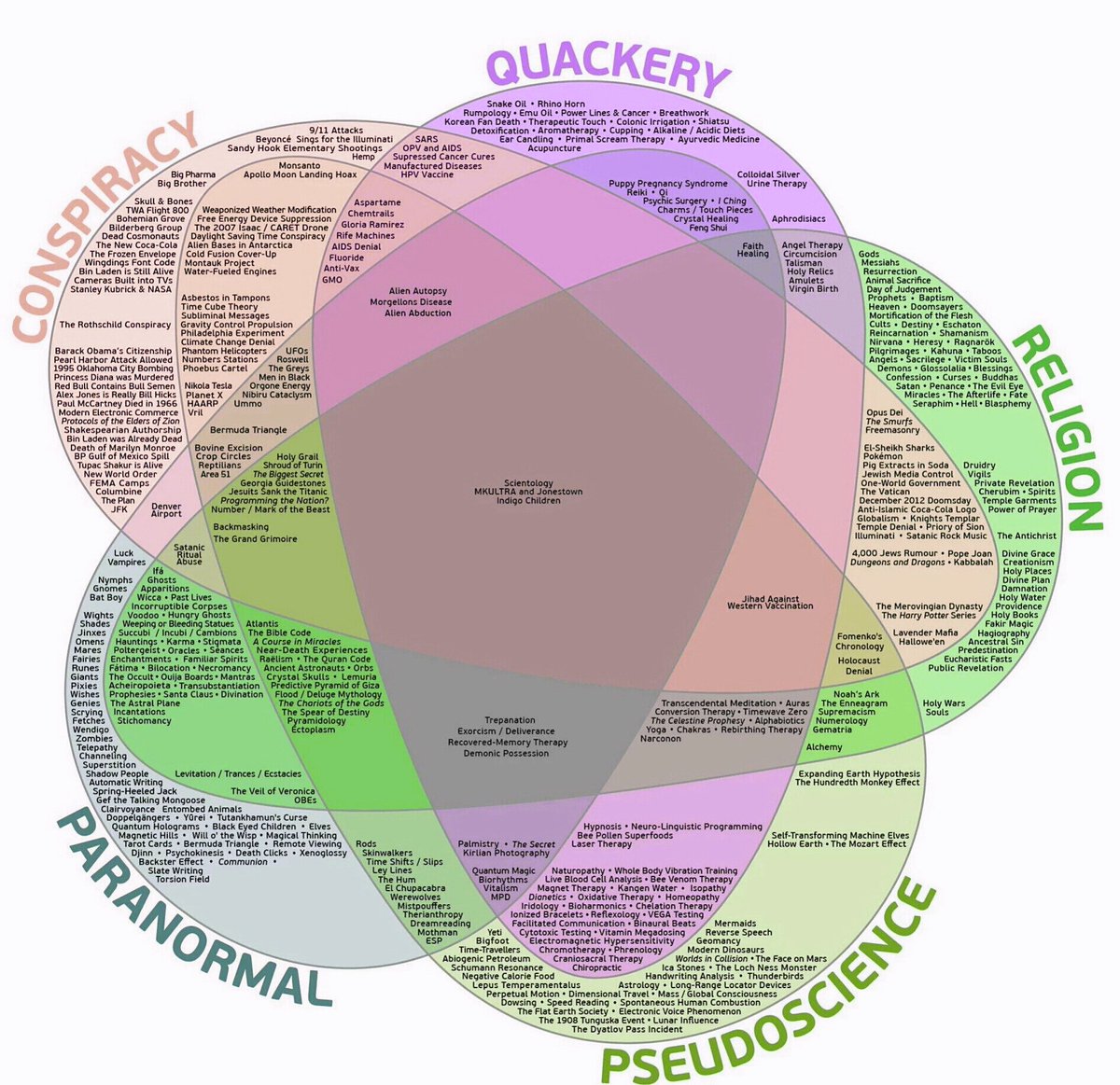
I’m doing alright
End of year situations tend to make one reflect… so this morning I sat with my coffee and spent some time pondering over the past year, and came to the conclusion that, all in all, I am living my best life. I am doing alright. I was helpful to people, and tried not to hurt anyone. I looked after myself and others. I am able to forgive myself, and hold no grudges against anyone.
I am doing alright. Thanks world.
Blockchain or ledger me gently
In its most basic term, blockchain is a database of transactions that can be arranged and added to in “blocks”. Each block represents and identifies previous transactions using cryptographic functions, to create an unbroken chain of custody for goods or services that, importantly, cannot be modified.
Acting as a digital ledger, blockchain creates a verifiable audit trail that can be used for any transaction, and this is where its impact on sustainability begins to take shape. Blockchain can be implemented – and in some cases, is already used – across numerous sectors, from forestry and fisheries to carbon accounting and energy.
It is a self-governing, online database owned by no one and usable by everyone. Because the “chain” can’t be modified* it can immediately provide proof of purchase for any transaction, whether that be procurement of sustainable materials to purchasing renewable energy.
(*before Quantum computing that is)
Read more about blockchain here.
Take risks
8 strategies to up self-confidence (and this is more a post to myself than anything):
1. Ask, ‘what would I say to a loved one in this situation?’ We’re kinder and more compassionate to others than to ourselves. Also, we’re not so quick to mull or analyse all that’s going wrong when helping someone else. Questioning entails mindful awareness to a problem. Too often, people lacking in self-confidence brush off a mistake or a lost opportunity as a character flaw, not as a chance to gain insight into a problem area.
2. Expand your circle of potential. Visualisation is a powerful technique of creating an image of yourself as you want to be, within your mind. When we struggle with low self-confidence, we have a poor perception of ourselves that is often inaccurate. When visualising a positive version of yourself, several areas converge helping you to: a) activate your creative subconscious which increases creativity, b) program your brain to recognise internal and external resources c) manifest the law of attraction, thereby placing yourself in the purview of positive people and opportunities, and d) increase your motivation to take the necessary actions to achieve your dreams.
3. Notice what you’re doing well. This step loosely fits into the “think positive” mantra, and with good reason. When you’re lacking confidence, it’s easy to focus on mistakes. The trick is to catch yourself before a bad mood threatens your day. For example, a while back I noticed when I awoke my mind quickly scanned all the things I didn’t accomplish from the day before. Once I caught myself, I reframed with, “what am I doing right?” This was a game changer in starting my day on a healthy note.
4. Give negative thoughts the boot. This ties into the tip above, as unhealthy thoughts pervade an insecure mindset. A hallmark of an emotionally healthy mind is vigilance around what enters your sacred mental real estate.
5. Get curious about your inner world. When you become self-aware about your thoughts and how they impact your feelings and behaviors, you’ve set the stage for reducing insecurities. “Hmm, that was an interesting reaction…wonder if there’s something deeper I’m avoiding.” Or, “if I was to let go of my need to control the outcome of situations, how would that feel?”
6. Take risks. You miss 100 percent of the shots you don’t take. Regret is a huge theme in psychotherapy, especially as we age and our lives become more narrow. Bottom line: You will never reach your potential if you don’t execute a plan.
7. Act “as if” you possess the confidence your aspire to have. When life doesn’t go well it can seem like there’s no rhyme or reason. This is a good time to behave “as if” you’re where you want to be. It’s getting up early, showering, putting on nice clothes and going out in public and networking even though you don’t have a job. Building self-confidence means taking action despite your fear of failure. If things work out, then you now know you’re more confident than you think. If things don’t work out, you now know the experience didn’t break you. Either way, you’re better off.
8. Get organised. Have a system in place for problem-solving. If career advancement is hindered because you didn’t pass an important test, set daily goals for learning the material. Every problem has a solution, and a disorganised mind is the enemy of momentum. Study like there’s no tomorrow and adjust your priorities, accordingly.
The good news is research reveals that self-confidence isn’t fixed at a certain age, but tends to increase with self-awareness and life experience. You are as young as your self-confidence, as old as your fears; as young as your hope, as old as your despair.
The Inner Life of Rebellion
My favourite podcast, a guaranteed pick-me up at all times:
The history of rebellion is rife with excess and burnout. But new generations have a distinctive commitment to be reflective and activist at once, to be in service as much as in charge, and to learn from history while bringing very new realities into being. Quaker wise man Parker Palmer and journalist and entrepreneur Courtney Martin come together for a cross-generational conversation about the inner work of sustainable, resilient social change.
Parker Palmer and Courtney Martin — The Inner Life of Rebellion
Sydney’s infrastructure crisis
This 100%
Sydney is transforming, and not in a good way. Not that there’s anything wrong with height or density per se. Sydney must grow, and must end its sprawling habits. But to do it in a way that preserves and enhances flavour, character and intimacy requires strong, wise government. Instead we have government that doesn’t believe in governance.
Read the whole article here smh.com.au/comment/the-catastrophe-of-sydneys-priority-precincts
Corporate priorities & innovation
At the CSL.org.au course last night a young woman from Westpac held a talk about “shared values”, and Corporate Australia. In her talk, social and environmental considerations were ‘external factors’, which could be put into the equation because that would lead to higher economic returns.
At question time I tried to explain my take on ecological economics, sustainability and triple bottom lines, whereby the economy sits as a subsection within the greater context of the natural world, the environment and the social component.
She did not follow my train of thought. She continued describing how Westpac will replace ‘a shitload of jobs’ (her words) with automation, but that Westpac would be all CSR and train 400 people up for other jobs. I mentioned the EU is considering a robot tax.
She then tilted her head and shot off a preconceived comment (seemingly a trained reflex-reply when the word ‘tax’ appears), questioning how that would “stifle innovation”. I did not reply, but the answer would have been:
If innovation only means to produce stuff cheaper, so to gain higher profit margins, then hell yeah let’s stifle that.
https://twitter.com/irisherself/status/905410002902441984
Power by resource – Might makes Right
Our current, prevalent, archaic and unfortunate mindset of “might makes right” is at the crux of all the hypocrisy and global tragedy that we’re confronted with in our modern times. The idea associated with the phrase “might makes right” connotes that a society’s view of right and wrong is determined, like its perspective on history, by those currently in power. The term is used in the descriptive, rather than prescriptive way, in the same sense that people say that “History is written by the victors”. Because every person labels what they think is good for themselves as right, only those who are able to defeat their enemies can push their idea of what is right into fruition.
‘Kratocracy’ describes a government by those who are strong enough to seize power through force or cunning. In terms of morality, those who are the strongest will rule others and have the power to determine right and wrong. By this definition, the phrase “might makes right” manifests itself in a normative sense. This meaning is often used to define a proscriptive moral code for society to follow, as well as while discussing social Darwinism and Weberian themes of the authority of the state (e.g. Wirtschaft und Gesellschaft) in critical assessments of expressions of power.
More on Might makes right on Wikipedia
Related: Moral nihilism and the Plunder of Natural Resources.
Watch: Leif Wenar, Chair of Philosophy and Law at the School of Law, King’s College London https://www.youtube.com/watch?v=CLbFx2t5ZbA
Safe word
https://twitter.com/irisherself/status/878882484120829952
Colvinius
Also I miss @colvinius. Twitter (and Australia) is a much less good place without him.
“There was an innate fairness about Mark… capable of “10,000 simultaneous conversations and of making each person feel they were the only one he was talking to”… an oasis of acceptance, kindness, braininess and fun.”
“Colvin’s desire to lift up those around him up was agreed upon by all.
He would remember things you had done and said years ago.”
“He loved mischief.”
That’s what I loved him for the most. xx

